Why are dogs so loyal? Why do they wag their tails with happiness and wait at the door for their favourite human? What’s behind their strong love and faithfulness?🐶💖
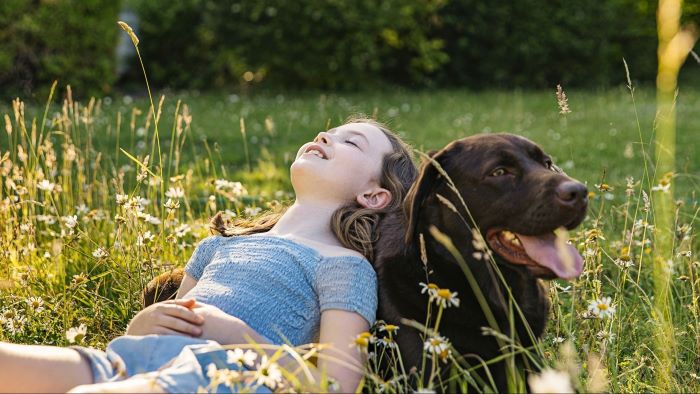
If you’re curious like us, join us on this experience to understand our best friends and the special connection we share with them.
Why Are Dogs So Loyal?
Dogs are famously loyal to their owners. Their loyalty comes from their wolf ancestry, relying on us for food and shelter, and centuries of selective breeding. They see humans as part of their pack and look up to us as their leaders.
When humans first began to tame and train dogs for various tasks, loyalty became a fundamental element of the human-canine partnership.🤝 Dogs that were more loyal and cooperative had better access to food, shelter, and protection, which allowed them to thrive in the company of humans.
“Loyalty is also considered a survival trait in dogs. In the wild, dogs live in packs and rely on each other for survival. Loyalty to the pack leader ensures that the pack stays together and survives. Loyalty is not merely a learned behaviour in dogs; it’s also influenced by their genetics” says the experts at Purina.
Certain genetic🧬 markers have been identified that make some dogs more inclined to bond closely with humans.💖 These genetic factors interact with the environment and upbringing to shape a dog’s loyalty.
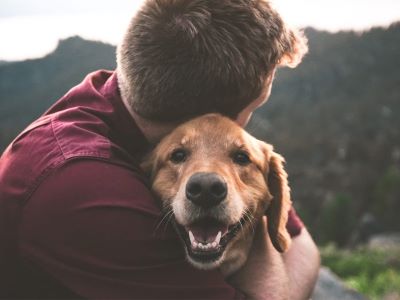
The Social Nature of Dogs
Dogs are naturally sociable creatures. It’s just a part of who they are. Their loyalty is like the bond we have with our friends and family.
When dogs spend time with people or other dogs, they grow close to them. It’s like how time spent with loved ones strengthens our connections. When dogs are in groups, they become a team. They help each other out, like when you and your classmates work together on a project.
This teamwork ensures everyone’s well-being, just as teamwork can help a group of people achieve their goals. So, dogs’ loyalty is rooted in their natural instinct to cooperate within their packs. It’s a heartwarming part of their nature.
Bonding with Humans
Dogs forming strong bonds with us is a beautiful process, much like building a cherished friendship.
As we spend time together, a unique connection is developed, one that’s truly special. In this bond, trust becomes like having faith in a dear friend. It’s about relying on each other and believing in the relationship.
Companionship, on the other hand, is about being the best of pals and sharing moments of joy and comfort. Loyalty, a precious aspect of this connection, means standing by each other through thick and thin, through all of life’s ups and downs. It’s a devotion that remains unwavering.
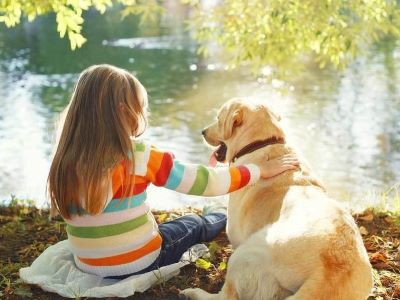
Positive reinforcement acts as the glue that holds this friendship together. It’s the act of showing love and appreciation, making the connection even stronger and more heartwarming.
Training and Upbringing
Training plays a vital role in strengthening the loyalty of dogs. When dogs are well-trained, they understand what’s expected of them, which creates a sense of security and trust.
1) The Importance of Early Socialization
It’s crucial for helping them become well-adjusted and confident companions. When dogs meet different people, animals, and experiences during their early months, it builds their trust and reduces fear[1].
This early socialization plays a key role in shaping their social behaviour and loyalty. It’s like giving them a strong foundation for positive interactions.
2) Training Techniques for Fostering Loyalty
Consistency in training is also important, as it helps dogs understand what’s expected of them. Clear communication, patience, and kindness in training create a safe and trusting environment, which is a cornerstone of loyalty.
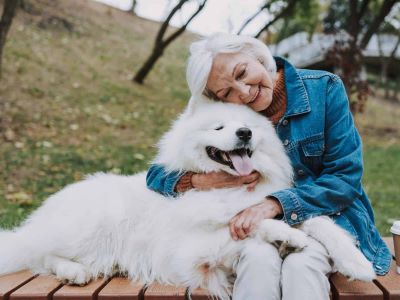
So, effective training techniques are like building the bridge to a deeper and more enduring connection with our furry friends.
Benefits of Dog Loyalty to Humans
Dog loyalty provides a wealth of emotional and therapeutic benefits to humans. The strong bond between dogs and their owners can reduce feelings of loneliness and stress.
Dogs are wonderful listeners and offer unconditional love, making them excellent companions for those dealing with mental health issues, such as anxiety and depression.
The Roles of Dogs
Dogs serve in various vital roles across society. In the field of therapy, they work with individuals with physical and emotional disabilities, providing comfort and assistance.
In the world of search and rescue, loyal dogs use their skills to locate missing persons and offer solace to those in distress. Guide dogs assist individuals with visual impairments, enhancing their independence and quality of life.
Loyal canines also support law enforcement as K-9 officers, playing a crucial role in maintaining public safety. Their unwavering loyalty and specific training make these dogs indispensable in various capacities.
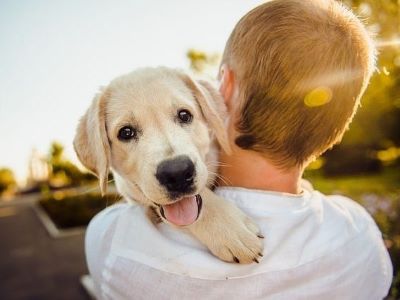
Security and Protection
Throughout history, dogs have been guardians! They’re loyal to their owners and have protective instincts, which makes them great at watching over homes, livestock, and people.
Loyal dogs often act as alert keepers, warning their owners of possible dangers and scaring away intruders. Certain breeds, such as German Shepherds and Rottweilers, are well-known for being protective, and their loyalty to their family makes them dependable in keeping the property safe.
So, dog loyalty doesn’t just add emotional richness to our lives; it also provides us with a sense of safety and security.
FAQs
1. Why Are Dogs So Loving?
Scientists studied the role of oxytocin in a dog’s brain as an influence on social interactions with humans and with other dogs. They found evidence that oxytocin enhances social motivation in dogs to approach and interact with their dog partners and their human partners.
2. Why Are Dogs So Loyal?
Domestic dogs are descended from wolves, which man once took in and tamed with shelter and food in return for them acting as guard dogs. This reciprocal relationship remains in your dog’s genes and their loyalty is a by-product of it.
3. Do Dogs Really Love Their Dogs?
Science confirms what we knew all along, that most dogs actively choose proximity to humans and, within a few months of being born, a puppy’s attraction is clearly toward people rather than other dogs.
Summary
A dog’s loyalty is unmatched. Over thousands of years by our sides, canine devotion has only grown stronger.💖
So, next time you wonder “Why are dogs so loyal?” Remember, Dogs stick with us through life’s ups and downs in a way no other friend can. Their desire to bond manifests in their loving glances, joyful greetings, and reassuring touches.
Dogs sense and respond to our needs, loving us with sincerity beyond what we likely deserve. So the next time you gaze into your loyal dog’s adoring eyes, cherish this treasured gift.🐶 Their enduring devotion is a special cross-species bond – a sincere loyalty like no other!
Remember:
- the role of early age socialization practices on adult dog behaviour– NIH



